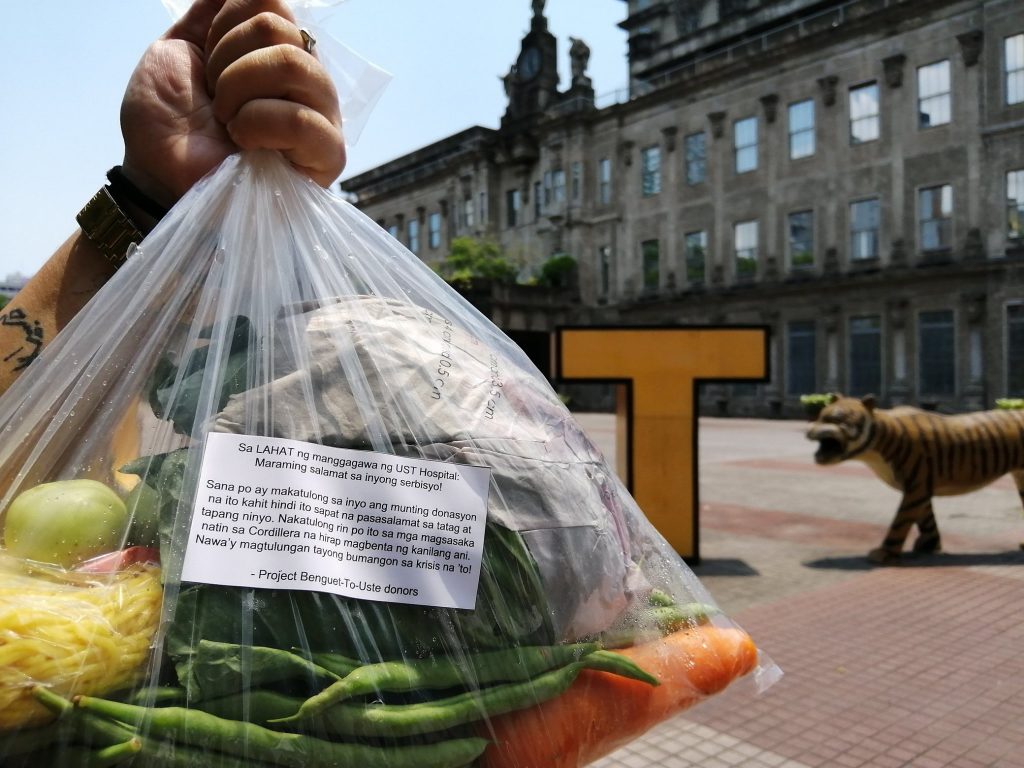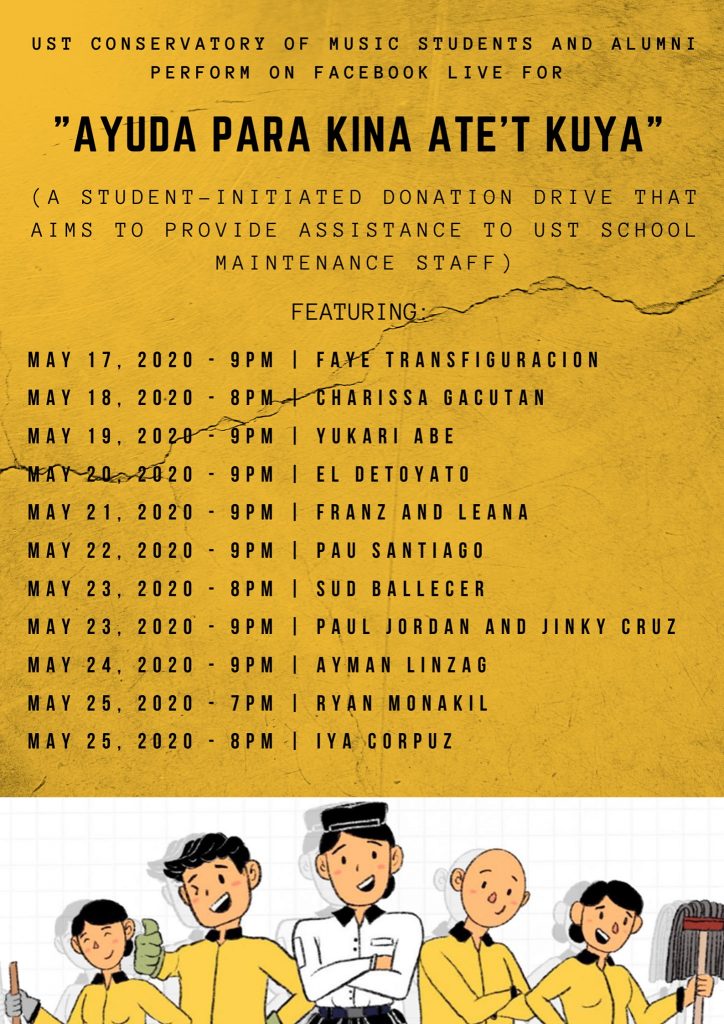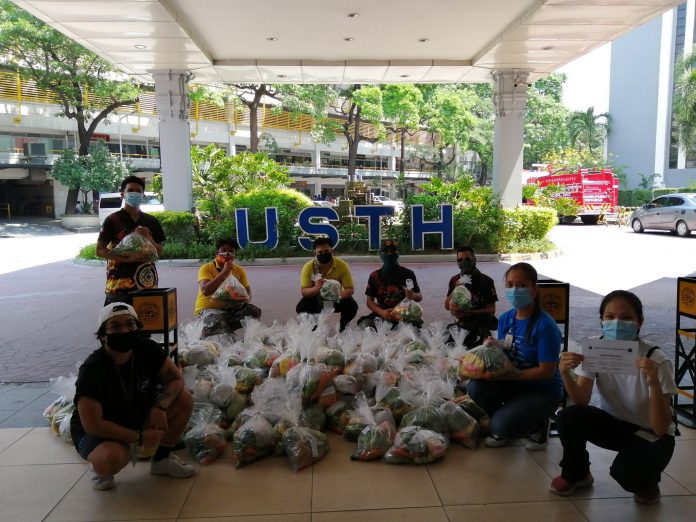A student-led fundraising campaign made the rounds on social media for helping farmers and outsourced campus maintenance staff amid the pandemic.
Third-year music education major Keisha de la Cerna led “Benguet to USTE / Ayuda Para Kina Ate’t Kuya,” which provided aid to farmers from Benguet, UST Hospital workers and 117 maintenance staff of the University.
The first phase of the project, which took off last May 10, raised P64,000 in donations, which was used to buy surplus vegetables from Benguet farmers who had difficulty selling their produce due to lockdown restrictions.
“We are an agricultural country yet our produce is just left to rot awaiting distribution that never arrived,” de la Cerna told the Varsitarian.

Some 400 bags of vegetables weighing 3 kilograms each were distributed to UST Hospital workers and on-site maintenance staff on May 20.
De la Cerna said she was inspired by the vegetable drive for Philippine General Hospital employees led by students from the University of the Philippines-Manila.
“After seeing their first batch and how there were numerous volunteer groups also helping farmers mobilize their crops to the city, I mirrored the same Project for UST, in a slightly smaller scale,” she said.
The second phase of the project involved online performances by students and alumni of the Conservatory of Music.
 De la Cerna said the performances sought to raise awareness and encourage donations for the beneficiaries.
De la Cerna said the performances sought to raise awareness and encourage donations for the beneficiaries.
Donations for “Ayuda Para Kina Ate’t Kuya” reached a total of P254,997.09, exceeding the target P250,000.
The donations were distributed as cash aid to 117 outsourced public area maintenance staff on campus who were on minimum wage and under “no work, no pay” contracts.
“I found that the public area staff [bore] the brunt of lockdown because compared with their counterparts assigned to school buildings, they received far less, if any at all,” de la Cerna said.
The next big step is how to sustain the project, she said.
“I have learned that it is easy to help when there are already systems in place that facilitate. That inspired me to deliver the same efforts to UST,” she said.















